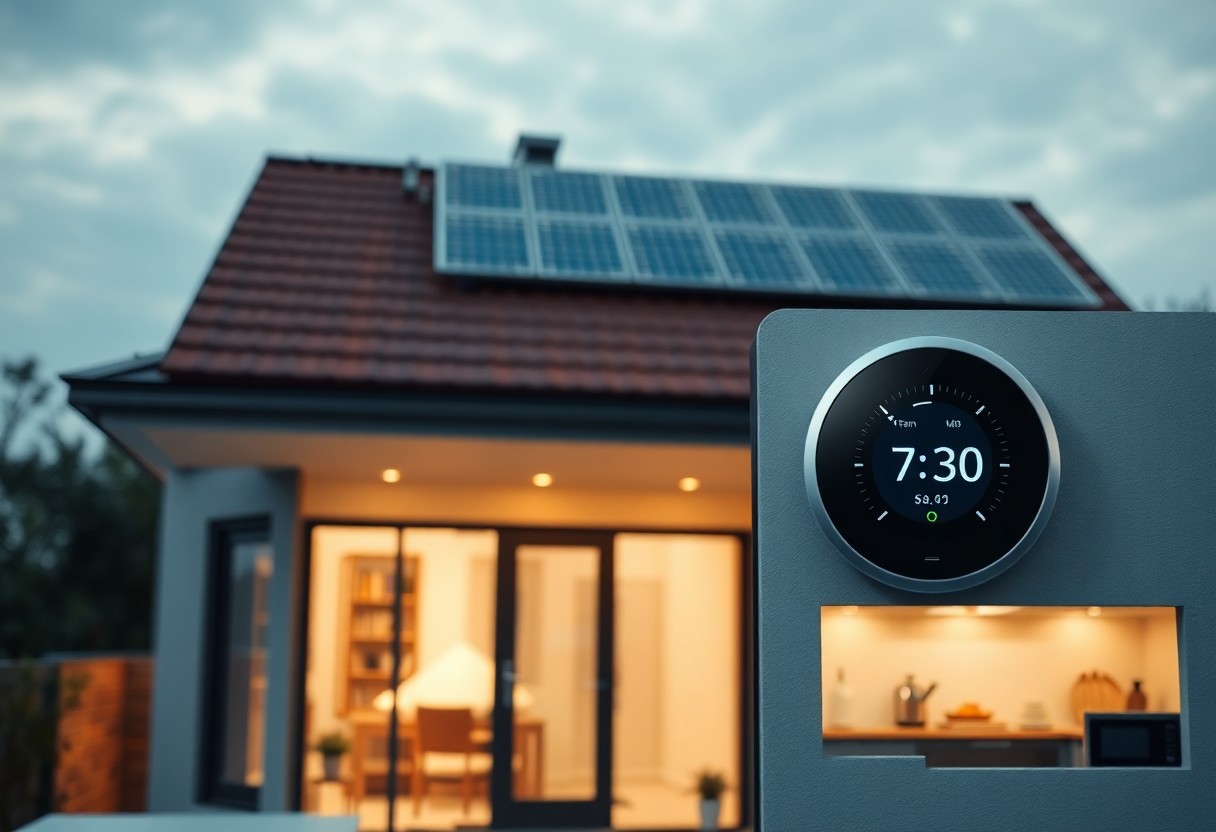You can significantly reduce your energy expenses by understanding the various options available to you. By adopting energy-efficient appliances and implementing simple habits, you can decrease your consumption and ultimately enhance your savings. Additionally, exploring renewable energy solutions and utilising smart technology can lead to more informed choices about your energy use. This blog post will guide you through valuable strategies to help unravel the mystery of saving money on your energy bills, ensuring you keep your finances in check while being environmentally conscious.
Understanding Your Energy Bill
The energy bill can often feel like a complex document, but breaking it down can provide clarity on your consumption and costs. By familiarising yourself with its structure, you’ll be better equipped to identify potential savings and understand where your money goes each month.
Components of Your Energy Bill
Around your energy bill, you will typically find various components, including the usage charges, fixed fees, and taxes. Each part contributes to the total amount owed, reflecting both your energy consumption and the service provided by your utility company.
Common Charges and Fees
Common charges on your energy bill often include delivery charges, supply charges, and various fees for renewable energy initiatives. Understanding these components can empower you to make informed choices about your usage and payment plans.
Due to the combination of delivery charges and supply charges, it’s necessary to scrutinise these common fees as they can significantly impact your overall bill. Delivery charges cover the cost of transporting energy to your home and can vary based on your location and provider. Meanwhile, supply charges relate to the energy you consume and sometimes reflect contracts tied to specific tariffs or plans. Being aware of these details enables you to assess your options for reducing costs effectively.
Energy-Efficiency Audits
If you are looking to cut down on your energy expenses, considering an energy-efficiency audit could be a great step. This thorough examination of your home’s energy use can highlight where energy is wasted and suggest practical solutions, ultimately leading to substantial savings on your bills.
What is an Energy Audit?
One of the first steps to understanding your energy consumption is an energy audit, which evaluates how your home uses energy and identifies areas for improvement. This process involves inspecting your heating, cooling, insulation, and appliances to determine their efficiency, providing you with a roadmap to optimise your energy use.
Benefits of Conducting an Audit
About conducting an energy audit, it offers multiple advantages, including improved home comfort, reduced energy bills, and a smaller carbon footprint. By identifying inefficiencies, you can make informed upgrades that can significantly enhance your home’s overall performance.
Indeed, conducting an energy audit is an investment that pays off in more ways than one. You’ll discover hidden sources of energy waste and receive tailored recommendations to enhance your home’s energy efficiency. Furthermore, by implementing these suggestions, you not only lower your energy costs but also contribute to a sustainable future. The insights gained from an audit can lead to a more comfortable living environment while significantly reducing your environmental impact.
Smart Home Technology
Assuming you’re keen to cut down on your energy expenses, embracing smart home technology can be a game-changer. These innovative systems provide you with the ability to monitor and manage your energy use from the palm of your hand, ensuring efficiency and convenience. By integrating smart devices into your home, you not only save money but also contribute to a more sustainable lifestyle.
Energy Management Systems
An energy management system can significantly enhance how you oversee your household’s consumption. By tracking your usage patterns, you can identify areas where you can improve efficiency and reduce waste, ultimately leading to lower bills and a smaller carbon footprint.
Smart Thermostats and Appliances
Home automation tools, such as smart thermostats and energy-efficient appliances, are designed to optimise your energy usage based on your daily habits. These devices can adjust heating or cooling automatically when you’re away, ensuring you’re not spending on energy needlessly.
Technology has transformed the way you approach energy consumption in your home. Smart thermostats learn your daily routines, adjusting temperatures for optimal comfort and energy efficiency. By programming or using intuitive sensors, they prevent unnecessary heating or cooling, saving you up to 30% on energy bills. Meanwhile, smart appliances operate at the most efficient times, reducing energy costs even further. Embracing these solutions not only delivers immediate savings but also fosters a more environmentally friendly household.
Behavioral Changes for Savings
Many individuals overlook the substantial impact that behavioural changes can have on energy savings. By consciously adjusting your daily habits, you can significantly reduce your energy consumption and, in turn, lower your expenses. Simple changes in lifestyle choices not only foster a more sustainable environment but also enhance your financial situation.
Simple Habits to Reduce Usage
Habits such as turning off lights when leaving a room, unplugging devices that aren’t in use, and utilising natural light during the day can greatly decrease your energy usage. Adopting these small yet effective practices can lead to notable reductions in your energy bill over time.
Awareness and Reporting
On being conscious of your energy consumption, you can identify patterns and areas for improvement. Keeping track of your usage through monthly reports will empower you to make informed decisions regarding energy-efficient practices.
At the core of awareness and reporting lies the ability to grasp your energy habits and their impact on your finances. By assessing your energy bills and identifying spikes or unexpected charges, you can take proactive steps to address issues. This heightened awareness allows you to pinpoint inefficient appliances and make positive changes, such as replacing outdated equipment with energy-efficient models, which ultimately leads to reduced energy costs and a healthier bank balance.
Renewable Energy Options
Unlike traditional energy sources, which can burden your finances and the environment, renewable energy options offer sustainable alternatives. By embracing these sources, you can fundamentally reduce your energy expenses while contributing to a greener planet. Options like solar, wind, and biomass not only lower your bills but also enhance your home’s value, establishing a lasting legacy of energy efficiency.
Solar Energy Benefits
For homeowners, investing in solar energy can lead to significant savings on your electricity bills. Not only can you generate your own power, but you may also benefit from various government incentives and rebates, making the initial investment more affordable. Furthermore, solar panels can dramatically enhance the resale value of your property, offering a long-term financial advantage.
Utilizing Wind and Other Alternatives
Alternatives to conventional energy, such as wind, can also provide substantial savings. Wind turbines convert wind energy into electricity, reducing your reliance on the grid and lowering your energy costs. Additionally, exploring other renewable sources, like geothermal and biomass, allows you to diversify your energy portfolio, ensuring you’re more resilient to fluctuating energy prices.
Energy from wind and other alternatives can significantly contribute to your overall savings. Wind energy systems are becoming increasingly affordable and can be an efficient option for those in suitable locations. Moreover, by adding features like battery storage, you can optimise your energy use and further decrease your utility bills. Embracing these options not only benefits your wallet but also fosters a safer environment and supports sustainable practices for future generations.
Utility Programs and Incentives
Once again, exploring utility programs and incentives can lead you to significant savings on your energy expenses. Many utility companies offer schemes designed to reduce your overall consumption through rebates, discounts, and even cash rewards. By participating in these initiatives, you not only lower your bills but also contribute to environmental sustainability. It’s in your best interest to stay informed about what your local energy provider offers.
Understanding Rebates and Discounts
Across various energy companies, rebates and discounts are common incentives that empower you to lower your costs. These can include financial returns for energy-efficient purchases or temporary rate reductions for your consumption. By doing some research, you can take advantage of these offerings, ultimately leading to a more manageable budget.
Programs to Help Reduce Costs
With numerous programmes available, you can significantly cut back on your energy expenses. These may involve energy audits, which assess your home’s efficiency, or grant schemes for installing energy-saving appliances. Understanding these options will help you make informed decisions that benefit your finances and the environment.
Understanding the best energy reduction programmes can genuinely change your overall expenses. These programmes are often designed to assist you in upgrading your home with energy-efficient appliances or implementing temporary financial support during high consumption periods. By engaging with these services, you not only potentially qualify for substantial savings but also become more aware of your own usage patterns. Make sure to check the eligibility requirements and application process for each programme, as some may require upfront investments to reap long-term benefits.
Summing up
The key to unraveling the mystery of saving money on your energy expenses lies in being proactive and informed. You should regularly assess your energy usage, invest in energy-efficient appliances, and consider alternative energy sources. By making small adjustments, such as using energy-saving settings and improving insulation, you can significantly reduce your bills. Staying updated on available grants and schemes can also enhance your efforts. Ultimately, taking these steps will empower you to take control of your energy costs and lead to substantial savings over time.
FAQ
Q: What are some effective strategies for reducing energy expenses at home?
A: There are several effective strategies to lower your energy costs. Firstly, consider investing in energy-efficient appliances, as they consume less power. Secondly, improve your home’s insulation to prevent heat loss, which can lead to significant savings, particularly in colder months. Additionally, being mindful of your energy usage, such as turning off lights when not in use and utilising natural light during the day, can contribute to reduced expenses. Finally, consider switching to renewable energy sources if possible, as they can often offer long-term savings and lower your carbon footprint.
Q: How can I assess my current energy usage to identify areas for savings?
A: To assess your current energy usage, start by reviewing your energy bills over the past few months to identify trends and peak usage times. You can also use an energy monitor, which provides real-time feedback on your power consumption. Additionally, conducting a home energy audit, either by hiring a professional or using DIY methods, can help pinpoint areas of inefficiency, such as draughty windows or outdated appliances. This information will enable you to make informed decisions on where to focus your efforts for savings.
Q: Are there any government schemes or incentives to help save on energy costs?
A: Yes, various government schemes and incentives are available to assist households in reducing energy expenses. Many local governments offer grants or subsidies for energy-efficient home improvements, such as insulation and boiler replacements. Additionally, there are often schemes like feed-in tariffs for solar energy systems, which allow homeowners to earn money or receive credits for generating their own electricity. It’s advisable to check with your local government website or energy provider for specific schemes available in your area.




0 Comments